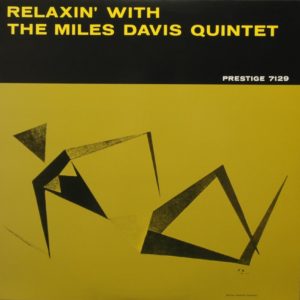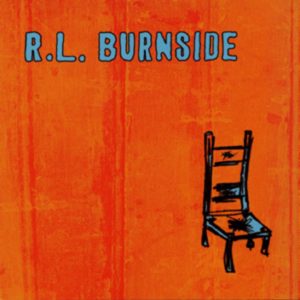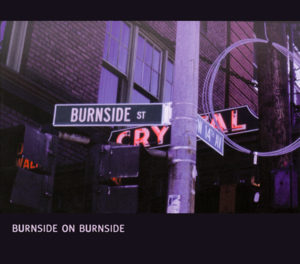Link to an interview with Paolo Pedercini conducted by Will Partin:
Month: August 2017
Andre Damon – Evidence of Google Blacklisting of Left and Progressive Sites Continues to Mount
Link to an article by Andre Damon:
“Evidence of Google Blacklisting of Left and Progressive Sites Continues to Mount”
Bonus links: “Google’s new search engine bias is no accident” and “Social Media Giants Choking Independent News Site Traffic to a Trickle” and “Google Suppressing World Socialist Web Site Content in its Search Results for the New York Times’ 1619 Project” and “Facebook Security Officer: Not All Speech Is ‘Created Equal’” and “Facebook’s power is to sort what people see and to screen information. That’s basically what Google does, too” and “Facebook Wants You to Know if You’re Getting Your News From the Wrong Government” and “Tulsi Gabbard vs Google Goliath” and “‘We Are Moving Into a New, Controlled Society Worse Than Old Totalitarianism’ – Zizek on Google Leak” and “Monopoly Media Manipulation” and “What Google and Facebook Are Hiding” and “Hawkish, Gov’t Funded Think Tank Behind Twitter Decision to Delete Thousands of Chinese Accounts” and “Twitter’s Ban on Political Advertisement: A New Move to Censor the Internet” (“The underlying assumption is that the determination of what is truth and what are ‘crazy lies’ is a purely objective process, unrelated to class or social interests.”) and “Liar, Liar” (“Capitalism is not inevitable nor is it some kind of natural law. Its a fact that Google and Facebook censor socialist sites. Why would they do that if they were not afraid? The authority structure, the proprietor class, they want you asleep. That’s the idea.”)
Bonus quote:
“Even when we don’t believe what the media say, we are still hearing or reading their viewpoints rather than some other. They are still setting the agenda.”
Michael Parenti, Inventing Reality: The Politics of the News Media (1986)
The Miles Davis Quintet – Relaxin’ With the Miles Davis Quintet
The Miles Davis Quintet – Relaxin’ With the Miles Davis Quintet Prestige PRLP 7129 (1958)
Relaxin’ With the Miles Davis Quintet is an unlikely candidate to be one of Davis’s best albums. But it ends up being precisely that. It was drawn from two 1956 recording sessions that spawned a total of four With the Miles Davis Quintet albums made to fulfill a recording contract as Davis jumped to a major label (and kicked off one of the most productive and inspired artist-label relationships, well, ever). There are a few people who rate Cookin’ With the Miles Davis Quintet as the best. But, to put it bluntly, they are wrong! Cookin’ blasts through more up-tempo numbers, but lacks the all-star firepower of Bags Groove.
This album is rooted in the hard bop tradition, but with a more laid-back and sophisticated demeanor. Yet it doesn’t ever truly venture into “cool jazz” territory. Relaxin’ is basically a perfect title for it. This is just exceptionally cool (read: hip) music.
The record label Prestige had a somewhat ignoble history and shady reputation. Its publishing policies were unfavorable to musician songwriters, so most Prestige albums feature all standards. The label also did not pay for rehearsals, so their albums leaned toward a “live in the studio” approach. Davis’ 1956 Prestige sessions lack nothing despite the absence of rehearsals. They featured Davis’ working group and they played these songs with a familiarity and solid improvisational rapport.
This band became known as Miles’ “first great quintet”. The rhythm section of “Philly” Joe Jones (d), Paul Chambers (b), and Red Garland (p) was the very definition of “solid”. There is no egocentric showiness. They just show up and play these songs like motherfuckers. Notably, Garland had a distinctive style that pared back the chord blocking and focused on more minimal and melodic lines, closer to the wind instruments.
John Coltrane (ts) is here, and of his early recordings as a sideman this is one that more than most points toward what he achieved later in his solo career. That is to say that he has an unobtrusive confidence and sense of wonder in his playing that is wonderfully effective, even if he plays merely a tangential role here and those qualities are just starting to peek out.
Miles, for his part, plays decisively while retaining a sensitive touch. His Harmon (wah-wah) mute, played stemless, features prominently. Davis always had a fiery, stubborn attitude, subdued somewhat by an introverted personality. He channels all that raging energy into this batch of songs in a way that displays an absolute mastery of conventional devices and an impeccable sensitivity to tone/mood. Perhaps it was the context of recording songs in a large volume that gave Miles the chance to playing without having to prove anything to anybody — otherwise something that seemed like a major preoccupation of his in his early career.
Basically, if the opener “If I Were a Bell” grabs you, get ready for a whole album with much the same effect. Frankly, all but the album Steamin’ from these sessions are great albums — and even that lesser one is good enough. For what it is worth, this reviewer reaches for Relaxin’ far more than any other pre-1960s Davis album. Maybe you will too.
Sun Ra – Concert for the Comet Kohoutek
Sun Ra – Concert for the Comet Kohoutek XYZ Music ESP 3033-2 (1993)
Another rather lo-fi live Arkestra recording from the 1970s. The percussion and the horns en masse sound particularly muddy, which does the music no favors. You have to be patient with this one, as it starts rather inauspiciously. The highlights are some smoking solos from Sun Ra on synthesizer, plus some vocals and sax soloing. The most intriguing moments come mostly in the middle of the album, on “Journey Through the Outer Darkness,” the perennial favorite “Enlightenment,” and “Unknown Kohoutek.” The vocals really kick in at the tail end of the album too, being the driving force on “Outer Space E.M (Emergency).” Some very good stuff here for fans, especially those who go for the noisier elements of Sun Ra’s work, though the unconverted will probably want to look elsewhere as, thankfully, you can find even better Arkestra recordings not unlike this fairly easily these days.
R.L. Burnside – Wish I Was in Heaven Sitting Down
R.L. Burnside – Wish I Was in Heaven Sitting Down Fat Possum 80332-2 (2000)
A “producer” album that pairs R.L. Burnside’s weary blues with trip hop electronics. It actually works on a few songs, notably the opener “Hard Time Killing Floor” plus “Bad Luck City.” It really is a bizarre pairing. When this first came out it was so far removed from Burnside’s usual stuff — though he had dabbled with electronics prior to this album — that I hated it. Looking back more than a decade and a half later, it clearly has its merits, mainly in the way it presents Burnside in a bleak and hazy urban setting. But at the same time the electronics are a little lazy. The repetitive riffing of Burnside’s hill country blues might seem to call for repetitive electronic beats, but that turns out to not be the case. Burnside was in somewhat failing health when this album was made, so he sings but doesn’t play guitar. There is nothing essential here, but this is passable stuff for the most part.
R.L. Burnside – Burnside on Burnside
R.L. Burnside – Burnside on Burnside Fat Possum 0343-2 (2001)
Slick, polished blues albums are some of the most unlistenable pieces of trash imaginable; this is well known. That bit of wisdom is something RL Burnside certainly has not forgotten. His albums are sometimes a mixed bag though. His experiments mashing up electronics and blues were marginally interesting. A collaborative punk-blues outing proved inspired. Gimmicks aside, there always was a talented juke joint veteran lurking inside. A man swigging whiskey on the side and strumming out the hypnotic vamps the devil bestowed upon the North Mississippi hill country decades ago. Recorded in Portland and San Francisco, this live disc, recorded at the Crystal Ballroom in Portland, Oregon, scrapes away all but the very essence of RL Burnside. It leaves only the raw and ragged embodiment of modern blues. This is essential Burnside — probably the best place to start in his catalog.
This old man rocks and reels without belying his age. Burnside on Burnside is a gritty little record with attitude. “Skinny Woman” is the best Burnside track you’ll find anywhere. It takes a swaggering stance that just might knock you off your seat. Burnside sings of liquor and women by praising them as his salvations. The substance isn’t in his words. You have to listen to his moans and what lies in between.
Burnside’s classic repertoire here, from “Snake Drive” to “Goin’ Down South” to is“Shake ‘Em On Down.” Give the band credit for not over-thinking these tunes. They play unadulterated blues and work in a mean fervor. Slide guitar wiz Kenny Brown belts out a sloppy heap of passionate growls. A Burnside compatriot since 1971, Brown is like an “adopted son.” RL’s grandson Cedric, a minimally-competent drummer, keeps the attitude irreverent and fresh. The drones explode with minimalist textures. On stage they looked goofy with RL in his suspenders and/or plaid flannel, Cedric in his hi-top sneakers and Kenny just looking out of place; but they sound fine.
While all this rambling unleashes itself on the album, you can still picture RL seated to the side, plucking his guitar. What makes Burnside so remarkable is — like Howlin’ Wolf — his ultra-modern usage of primitive (meaning old-timey and non-complex) forms. The simple brilliance can make your head swim. These live numbers stick to the group’s strengths. Nothing is too unusual, but even “basic” RL Burnside purrs like a vintage Cadillac that never goes out of style.
Tony Norfield – Amazon: Becoming the Market
ITUC Global Rights Index 2017
Link to a labor rights report:
“ITUC Global Rights Index 2017: Violence and Repression of Workers on the Rise”
Eddie the Eagle
Eddie the Eagle (2016)
20th Century Fox
Director: Dexter Fletcher
Main Cast: Taron Egerton, Hugh Jackman
A comedic sports biopic that is a bit too corny and hamfisted to really succeed. It is loosely (very loosely) based on the story of real-life ski jumper Michael “Eddie the Eagle” Edwards, who was one of the most inspiring figures of the modern olympic games. Robert S. Borden wrote in 1976, “If voting could change anything it would be made illegal!” The story of Eddie the Eagle and the Jamaican bobsled team (both competed in the 1988 winter olympics) are kind of the sports corollary to that saying. Their presence resulted in rule changes to ban almost any others from following in their footsteps. If there was hope for anything good in the olympics, it was (and is) in athletes like Edwards, who came from a working class background and self-funded his training. Sadly, the olympics are a bastion of corruption — from the U.S. government pulling the term “olympics” out of the public domain (privatizing the commons), to out-of-control corporate sponsorships/bribery/consumerism, to bribes and scandals with the top committees, to financial chicanery and defrauding of public budgets for funding, to wasteful construction, … ahh, the list goes on. They might represent everything wrong with sports — though there are so many examples of dirty business in sports that there are many other contenders (FIFA, NFL, NCAA, etc., etc.!). The world would be a better place without them all, frankly.
I still remember the real-life Eddie the Eagle jumping in the olympics. I was in a bar or restaurant of some sort with my family. Everyone in the place watched the TV to see Eddie the Eagle jump.
Anyway, this film is dumb but the story of the real-life Eddie the Eagle remains a great thumb in the eye of elitist twats who run the world (for now).
Meagan Day – Neoliberalism Is Real and Fundamentally Opposed to Left Principles
Link to an article by Meagan Day:
“Jonathan Chait Is Wrong: Neoliberalism Is Real and Fundamentally Opposed to Left Principles”
Bonus links: Right Turn: The Decline of the Democrats and the Future of American Politics (this is an older book that concretely refutes Chait’s claim that the Democrats have veered left, or simply haven’t veered right) and Liberalism: A Counter-History (this book shows how liberals in general are more aligned with the right than the left)





